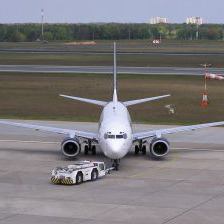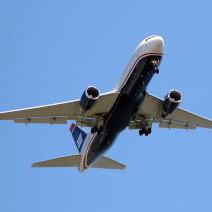Travel Tips
Senate Approves FAA Reauthorization Bill, Includes Passenger Rights & Air Traffic Upgrades
 While Washington was abuzz with the passage of the health care reform bill, another long-sought piece of legislation made its way to the House.
While Washington was abuzz with the passage of the health care reform bill, another long-sought piece of legislation made its way to the House.
On Monday, lawmakers in the Senate approved a bill that would overhaul the nation’s aging aviation system.
As part of a two-year $34.5 billion Federal Aviation Administration authorization, the bill would modernize the nation’s air traffic control system, transitioning it from World War II-era radar to satellite GPS.
The new air traffic system is estimated to cost the FAA around $22 billion. Lawmakers expect the updated system to improve airline efficiency and ultimately save the airlines money.
 As air traffic is expected to almost double from 700 million passengers last year to 1 billion by 2023, a new system is needed to handle the growing demand.
As air traffic is expected to almost double from 700 million passengers last year to 1 billion by 2023, a new system is needed to handle the growing demand.
The system will allow pilots to access real-time information about their location and the locations of neighboring aircraft. This will allow pilots to take more direct routes and fly closely to other aircraft without increasing safety risks.
Though lawmakers have included provisions in the bill that would allow the FAA to create grants to cover equipment costs, some airline officials are worried about their ability to implement the proposed equipment changes.
An estimated $20 billion would have to be spent by the airlines to install compatible equipment into their planes.
Learn more: New Passenger Rights Laws Could Shake Up Aviation
The FAA, meanwhile, has been given the ability to increased fuel taxes for business jets and other private aircraft to help subsidize the cost of the new system.
 In addition to updating the air traffic control system, the bill also includes several key provisions.
In addition to updating the air traffic control system, the bill also includes several key provisions.
The bill would legalize a “passengers bill of rights” that would require airlines to limit waiting times on the tarmac to three hours and to provided food, water and other amenities to passengers while they wait.
The “passenger bill of rights” along with Transportation Department rules adopted in December would fine the airlines up to $27,500 per passenger for tarmac waits exceeding three hours.
Other provisions in the bill focus on improving safety and training.
Airlines, under the bill, will have to provide remedial training for pilots who make errors or fail skills tests. Limits would be imposed on how many hours pilots would be expected to work.
Learn more with Aviation Safety in America & the Crash of Flight 3407.
 Co-pilots will be required to complete a minimum of 800 hours of flying experience, up from 250 hours.
Co-pilots will be required to complete a minimum of 800 hours of flying experience, up from 250 hours.
As a reaction to an incident last fall where Northwest Airlines pilots missed their destination because of laptop use, the bill ban pilots from using personal electronic devices in the cockpit.
Though the bill was passed 93-0 in the Senate, passage in the House is expected to be a tougher sell. The House has a competing bill which includes more controversial provisions such as an increases in fees paid by passengers for airport improvements, and a provision that would make it easier for ground workers at FedEx Corp to unionize.
By Adriana Padilla for PeterGreenberg.com.
Related links: Reuters, Associated Press, Government Executive
Related links on PeterGreenberg.com:
- New Passenger Rights Laws Could Shake Up Aviation
- Dept. of Transportation, Not Congress, Announces Airline Passenger Bill of Rights
- Bill Boosts Pilot Training Requirements: But Will It Make Skies Safer?
- FAA Reauthorization Bill Includes Passenger Rights, Air Traffic Control Modernization
- Airlines Balk at New Fines for Flight Delays












